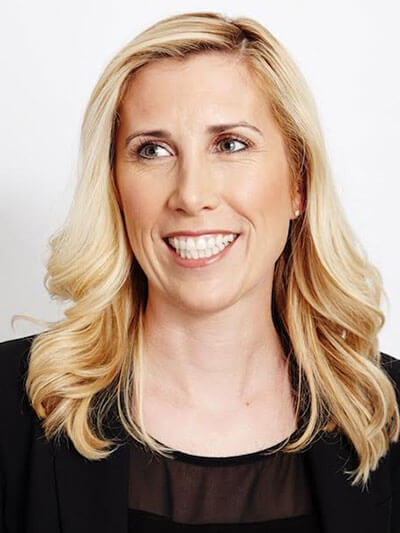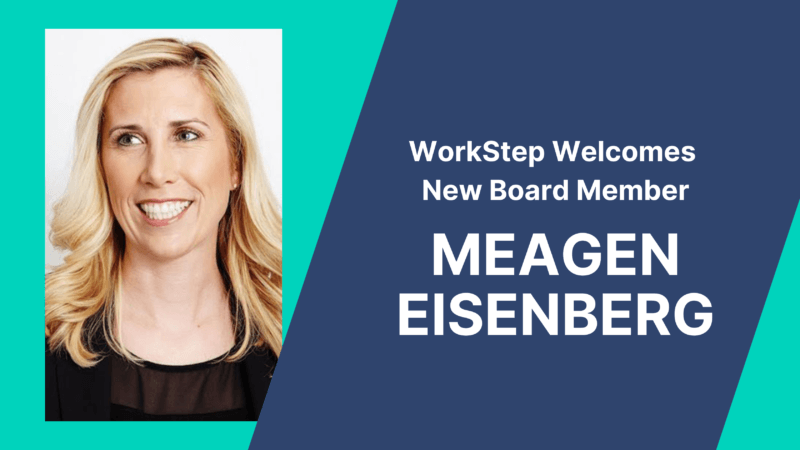 2022 has been, and continues to be, an incredibly exciting time for us all at WorkStep. We’ve seen exponential growth across our business, more than doubled our team since this time last year, and raised $25 million in Series B funding. Meanwhile, WorkStep has helped more than 100,000 frontline workers improve their job, and is in a unique position to improve outcomes for over 100M frontline workers in the years to come. That’s no small task ahead.
2022 has been, and continues to be, an incredibly exciting time for us all at WorkStep. We’ve seen exponential growth across our business, more than doubled our team since this time last year, and raised $25 million in Series B funding. Meanwhile, WorkStep has helped more than 100,000 frontline workers improve their job, and is in a unique position to improve outcomes for over 100M frontline workers in the years to come. That’s no small task ahead.
As we continue to expand the team and find the best talent to support our growth, we’re excited to welcome the newest member of our board of directors, Meagen Eisenberg. She brings more than 20 years of experience to the table, and will be a huge asset in helping WorkStep continue to scale. We had the pleasure of sitting down with Meagen to better understand her background, her decision to work with WorkStep, and some fun facts.
Tell us a little bit about yourself, and your experiences.
I’m the CMO of a high growth travel and expense management company, and my role includes global product marketing, corporate marketing, growth, web, systems, operations, field marketing & events and design. I also run our sales development org of about a hundred people. I’ve been here for three and a half years. I am also on the board of G2 and Terminus. Prior to that, I was at MongoDB for four years as their CMO and took the company public in 2017.
I’ve been in marketing for over 20 years. But I didn’t start there. I started as an IT engineer, a developer at Cisco systems in Manufacturing IT, right after receiving my Bachelor of Science in MIS and minor in computer science. After three years at Cisco, I decided to go to business school and pivoted over to marketing for tech companies. I thought with my background in tech and understanding the buyer would be a great combination for marketing technology. I started out in product marketing and was there for a few years, then quickly and naturally moved over to demand gen and programs.
I have advised a lot of companies over the last decade. I’ve had 17 successful exits, three IPOs, and fourteen acquisitions. And I’ve learned a lot from pattern recognition.
I think when you form a function or organization, it’s people, process and technology that are what is necessary to scale an org and are really important. And so when joining a company, I look at the team, I look at the processes that are in place, and I look at the technology – prioritize most critical changes and I scale.
One thing I’ve learned, certainly in marketing tech and HR tech, that really matters a lot, is that your most important asset at companies are your people. Product can do a lot, but the best product doesn’t always win. It’s the team that executes on product, go-to-market and operations that can win. So you should not under-resource your HR tech stack, because you’re managing and taking care of your most important asset – people.
What drew you to WorkStep?
What I love about WorkStep is the opportunity and need in the market, the way the company thinks about people, what the team has accomplished so far, and leadership. And a personal interest in supply chain and manufacturing that goes back to my Cisco Systems days.
When I was at Cisco, my first job out of college, I was in manufacturing IT and our job was developing for master schedulers. So I went and got APICS certified so I could better serve my end user (internal customer) and code for master schedulers. I wanted to make their job easier so they could better forecast and execute Cisco’s plan in manufacturing.
I’ve applied a lot of those learnings to marketing. Marketing is all about funnels, whether it is self sell and signup, or traditional funnel with SMB to Enterprise, it is a lead flow. There are bottlenecks, issues you’re trying to overcome, and your job is to make it the most efficient and productive funnel you can. You’re always trying to smooth the process. You’re always trying to be more efficient, save money, lower cost. And this is critical to your margins whether in a software business or on the manufacturing floor.
All over the news, we are hearing about the supply chain issues (goods, gas, ports backed up, not enough talent) and about a lot of under-staffed companies. I think more than ever, it’s important that we are supporting our people and giving them the right tools.
What impact do you think a potential downmarket will have on HR tech and businesses within the supply chain?
Having gone through this in 2000, 2008 and two years ago in the travel industry because of the pandemic, I have a lot of thoughts on it. In 2020 as a travel company, we had to do layoffs and cut our budgets in half. There was no demand for travel software, right. So what mattered more than anything was you conserved cash, focused on existing customers, took care of the employees you were able to keep, and had to win every deal.
Our competitors laid off most of marketing, cut their sales team, and cut their budgets as well. But we kept the lights on just enough to go attack and take the market. We had the best product and people. The only way we could do that was because of the talent on the team – we prioritized, we focused.
More than ever, you need to take care of the people, especially after a layoff, because there’s this survivor’s guilt, right? So you’ve got to focus, motivate, give purpose, and then take it out on your competitors.
I think now companies with limited resources need to make the best of those resources. I think HR tech helps you do that. Keep the best talent, because you have less, but you still want the best, and everyone else wants the best, too. What are you doing to attract them away from where they are and keep them?
WorkStep recently did some research, which found that 77% of frontline workers across the supply chain are looking to change jobs in the next three months. What are your thoughts on that?
That’s a lot, even with this environment.
Well, I’d like to understand the reason why they are not happy. Do they think they can get paid more? Are they bored? Do they not feel appreciated?
I mean, I think it’s great. They’re not scared about losing their job. They know they’re in demand. So it tells me more than ever you need HR tech because people feel like they’re in demand. They can go somewhere better. So you better be the better.
What advice would you give high growth tech companies in this marketplace today where there’s a lot of uncertainty?
I would say conserve cash, keep your customers happy and make sure you’ve got product market fit. Make sure you’re retaining your customers, because it’s much more expensive to get a new customer. And to get the multiples you want for financing, you have to show customer retention and expansion.
What are you most excited about in partnering with the WorkStep team?
I just think the potential is huge, and I think the pain you all are solving is a real pain. I love the team, what gets them excited, and I think you have the team to execute. And I think I can add value.
We have a tradition at WorkStep where we ask new employees to answer a series of fun questions to get to know them better. We’d love to hear your answers too.
So first question: crunchy or smooth peanut butter? Oh, crunchy.
Pineapple on pizza. Yes or no? Yes.
Messy desk or clean desk? Clean.
Ketchup or ranch? Oh, ranch for sure.
Guacamole or salsa? Oh, I like both, shoot! I guess guacamole.
Favorite season? Spring, maybe summer. Summer, uh, spring. Let’s go for spring.
Describe yourself in three words. Driven, goofy… I don’t know, I’m a mom.
What is something that people may not know about you that you could share with us? I have three daughters, 12, 11, and 8. I have four dogs, three French bulldogs and one Great Dane. But what’s something people might not know about me? I think a lot of people are surprised by my ability to balance life and work. I’ve done over 30 advisories over the past decade. I have lots of tips on how to approach it, and no, I could not have done it in my twenties or thirties. It takes a level of time management, pattern recognition, desire and love for start-ups, fast decision making and ability to motivate and hire the right talent quickly.
Tune into your frontline with WorkStep
With the frontline employee engagement platform that delivers the real-time insights you need to take action, retain your workforce, and drive your business forward.
Dan Johnston, Co-Founder & CEO | dan@workstep.com
